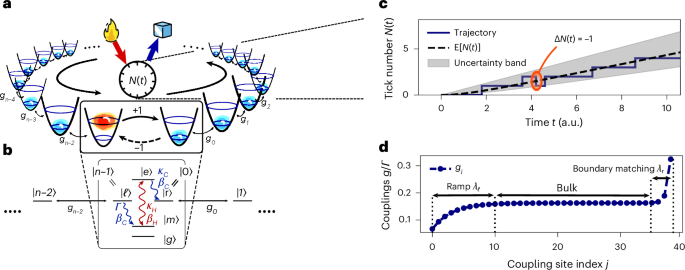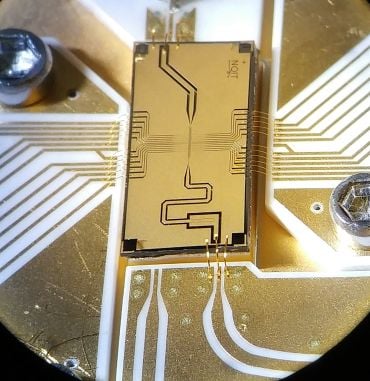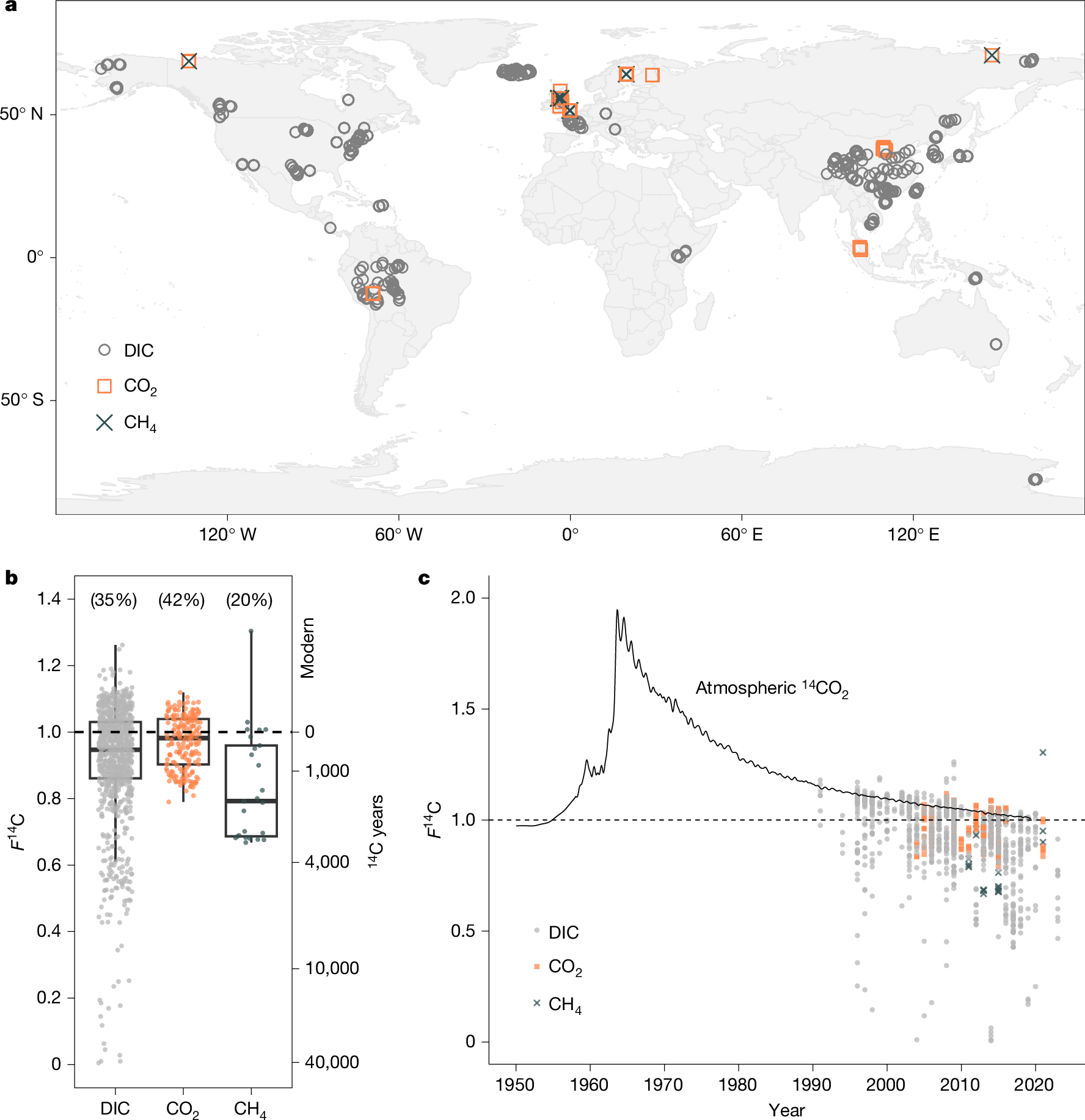2025-06-10 チャルマース工科大学
<関連情報>
- https://news.cision.com/chalmers/r/quantum-clocks-can-be-more-accurate-than-expected,c4160859
- https://www.nature.com/articles/s41567-025-02929-2
精度は熱力学第二法則によって制限されない Precision is not limited by the second law of thermodynamics
Florian Meier,Yuri Minoguchi,Simon Sundelin,Tony J. G. Apollaro,Paul Erker,Simone Gasparinetti & Marcus Huber
Nature Physics Published:02 June 2025
DOI:https://doi.org/10.1038/s41567-025-02929-2

Abstract
Physical devices operating out of equilibrium are affected by thermal fluctuations, limiting their operational precision. This issue is particularly pronounced at microscopic and quantum scales, where its mitigation requires additional entropy dissipation. Understanding this constraint is important for both fundamental physics and technological design. Clocks, for example, need a thermodynamic flux towards equilibrium to measure time, resulting in a minimum entropy dissipation per clock tick. Although classical and quantum models often show a linear relationship between precision and dissipation, the ultimate bounds on this relationship remain unclear. Here we present an autonomous quantum many-body clock model that achieves clock precision that scales exponentially with entropy dissipation. This is enabled by coherent transport in a spin chain with tailored couplings, where dissipation is confined to a single link. The result demonstrates that coherent quantum dynamics can surpass the traditional thermodynamic precision limits, potentially guiding the development of future high-precision, low-dissipation quantum devices.




